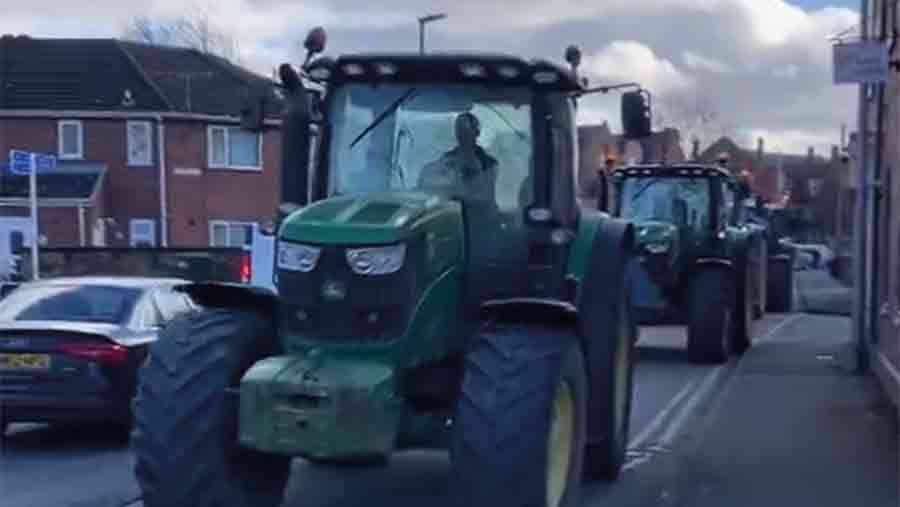Farmers have been protesting and blocking roads across England and Wales in a cry of outrage against recent legislative changes to the agricultural sector.
The marches got started underway last week at the Carmarthen showground in Nantyci on Thursday 8 February. 3,000 Welsh farmers gathered to make their voices heard about recent changes to financial support for the agriculture sector.
Since Brexit, the Welsh government has had control over its countries farming incentives, with new requirements ensuring that 10% of land is occupied with trees, and 10% treated as a wildlife habitat.
The protests made clear how unfeasible unions believe these criteria are, with many bringing signs and banners, and protestors paraded a coffin to represent “the death of Welsh farming.”
Inspired by similar French action, English action began the following day, Friday 9 February.
Blockades and a slow tractor protest of roughly 40 machines sprung up in Dover, this time campaigning against low payment prices from supermarkets and an increase in cheap food imports following Brexit, according to The Guardian.
Major roads through Dover were blocked, holding up traffic for several hours. The protestors were reported to have said that they intend to continue holding similar protests unless their concerns are addressed.
The farmers, many coming from Kent, will be meeting later today (13 February) at Canterbury to discuss the next steps going forward for their protests.
See also: Labour moves ahead of Conservatives in rural vote, survey shows
Yesterday morning, on Monday 12 February, Farmers Weekly reported that farmers from North Wales had struck again, this time bringing their protests closer to the home of Welsh government.
Tractors were driven to the constituency office of rural affairs minister Lesley Griffiths, with many blared their horns and holding placards reading “No Farmers, No Food”.
Many also voiced anger at a TB eradication policy they claim ignores wildlife.
Since the meeting in Nantyci, Mrs Griffiths proposed open invites to the presidents of both NFU Cymru and the Farmers Union of Wales to set up a meeting, after the former Aled Jones said the current Sustainable Farming Incentive (SFI) was causing “deep anguish”.
An official response from Defra published on Friday outlines how they believe ‘the government firmly backs [British] farmers’
“We are ensuring British farming is at the heart of British trade by putting agriculture at the forefront of any deals we negotiate, prioritising new export opportunities, protecting UK food standards and removing market access barriers,” it said.
However, following a lack of legislative action towards addressing the protestors demands, more unrest is expected across the country.
The protests follow weeks of demonstrations across Europe, largely in response to environmental measures farmers say are damaging their businesses, while there has also been a backlash to farming regulations in India, with police firing tear gas into crowds of thousands of farmers marching through Delhi.




